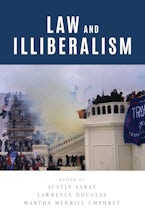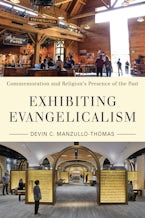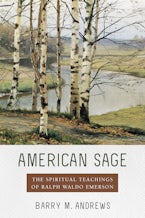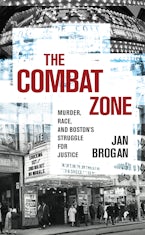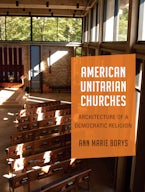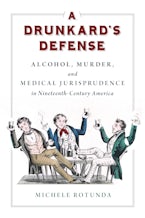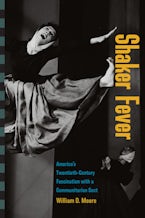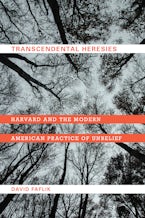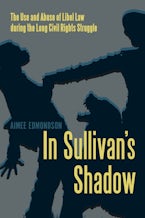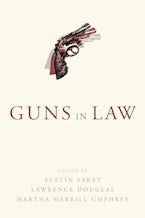- Home
- Religious Liberty in America
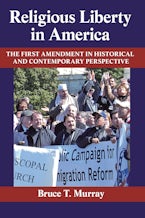
Religious Liberty in America
The First Amendment in Historical and Contemporary Perspective
Published by: University of Massachusetts Press
232 Pages, x 0.70 in
Other Retailers:
In recent years a series of highly publicized controversies has focused attention on what are arguably the sixteen most important words in the U.S. Constitution: "Congress shall make no law respecting an establishment of religion, or prohibiting the free exercise thereof." The ongoing court battles over the inclusion of the words "under God" in the Pledge of Allegiance, the now annual cultural quarrel over "Merry Christmas" vs. "Happy Holidays," and the political promotion of "faith-based initiatives" to address social problems—all reflect competing views of the meaning of the religious liberty clauses of the First Amendment.
Such disputes, as Bruce T. Murray shows, are nothing new. For more than two hundred years Americans have disagreed about the proper role of religion in public life and where to draw the line between church and state. In this book, he reexamines these debates and distills the volumes of commentary and case law they have generated. He analyzes not only the changing contours of religious freedom but also the phenomenon of American civil religion, grounded in the notion that the nation's purpose is sanctified by a higher authority—an idea that can be traced back to the earliest New England colonists and remains deeply ingrained in the American psyche.
Throughout the book, Murray connects past and present, tracing the historical roots of contemporary controversies. He considers why it is that a country founded on the separation of church and state remains singularly religious among nations, and concludes by showing how the Supreme Court's thinking about the religious liberty clauses has evolved since the late eighteenth century.
Such disputes, as Bruce T. Murray shows, are nothing new. For more than two hundred years Americans have disagreed about the proper role of religion in public life and where to draw the line between church and state. In this book, he reexamines these debates and distills the volumes of commentary and case law they have generated. He analyzes not only the changing contours of religious freedom but also the phenomenon of American civil religion, grounded in the notion that the nation's purpose is sanctified by a higher authority—an idea that can be traced back to the earliest New England colonists and remains deeply ingrained in the American psyche.
Throughout the book, Murray connects past and present, tracing the historical roots of contemporary controversies. He considers why it is that a country founded on the separation of church and state remains singularly religious among nations, and concludes by showing how the Supreme Court's thinking about the religious liberty clauses has evolved since the late eighteenth century.
Bruce T. Murray is an educational writer. Please visit his website: http://www.websage.us/
"Murray, a journalist, hopes this book is 'an easy read on a tough topic.' His hope is definitely realized in this volume, which should be required reading for all journalists who touch on the book's subject. . . . Other books on these issues have been appearing of late, but none as clear and thorough as this one."—Choice
"This concise and readable book discusses topics relating to the religion clauses of the First Amendment and, more generally, to the interaction of religion and politics in the United States. . . . Well written, engaging, and balanced in its presentations of competing views."—Catholic Historical Review
"Bruce Murray seeks to lay out historically and conceptually the issues behind the two religious liberty clauses in the First Amendment. In doing so, he introduces and traces such significant topics as the development of religious pluralism and its ironic counterpart, civil religion. Nowhere is there such a clear and concise explanation of these issues as Murray offers in this book."—Philip Goff, Indiana University–Purdue University, Indianapolis
"I heartily recommend this book for professors of history, political science, and religious studies, and to other readers trying to make sense of the confusion about the place of religion in American society and the role of the Constitution in its protection."—H-Law
"Murray deserves praise for his success as a narrator who seems to simply tap into the historical record and subsequently search out insight form reputable scholars. For an introduction and overview of the subfield of religious liberty in America, this work provides sufficient depth and for those interested, stimulates questions for further research."—Arizona State University
"This book is a splendid presentation of the First Amendment - with civil religion as a parallel theme - especially as presently related to so many issues in American political and religious life. Other books on these issues have been appearing of late, but none as clear and thorough as this one."—G.H. Shriver, Professor Emeritus, Georgia Southern University

